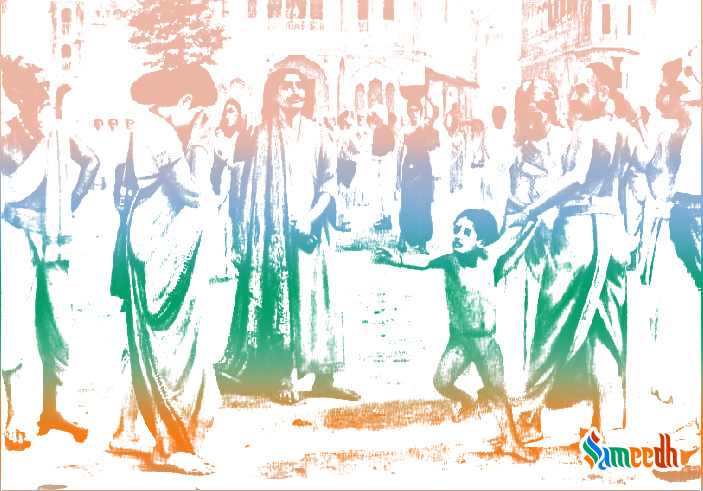This blog post elucidates the legendary qualities of Harishchandra, an epitome of honesty, one who was always true to his word! Read on to know more!

Harishchandra lost his kingdom and all the wealth parting with his only son in an auction; Image Source: Raja Ravi Varma
EARLY LIFE
Born a leader
Harishchandra was born in the Treta yug and became one of the most popular, revered and discussed king of the Solar Dynasty or Suryavamsha. His life and deeds were so legendary and inspirational that they found a mention in different epics like Mahabharat. According to several records like the Puranas, Harishchandra was born to Trishanku, who was the king of the Iskhvaku Dynasty. He was known as a generous and honest leader who kept his subjects happy and satisfied. His honesty was known across kingdoms and he was known to keep his promises and his word. This quality of his character led him to become an epitome of honesty with the actions he took in his life to keep his promise and stay true to his word.
LIFE EVENTS AND CONTRIBUTION TO SOCIETY
Tested by Vishwamitra
Harishchandra’s kingdom was burgeoning as a success and people lived happily under his leadership. The one happiness that always eluded him was the happiness of being a father. Despite the best efforts he was not able to experience and enjoy fatherhood. He was advised by Narda Muni to pray to Lord Varuna. With his best efforts and prayers to the Lord Varuna, he was awarded a boon of a son by Lord Varuna in exchange for a promise in the future. He was awarded a son who was named Rohitashva.
Later in his life, when Harishchandra was hunting in a forest, he ended up disturbing the meditation of Sage Vishwamitra and witnessing his rage, King Harishchandra promised him anything he wanted. The sage Vishwamitra asked for Rajasuya Yajna and leave all of his possessions like wealth, body, his family and his son. Keeping his word, he gave up all of his possessions and gave up his whole kingdom and family to the sage as a Dakshina.
LIFE AFTER MAJOR EVENTS
A difficult life
Harishchandra is known to have a very difficult life to fulfil his promise to Sage Vishwamitra. To keep his word and pay for the dakshina every time, he sold some of his most precious possessions in life and finally himself. After selling his wife and son, he ends up selling himself as a servant. As a servant he spent a long time removing clothes from dead bodies which came for cremation in Varanasi. He lived at the cremation grounds. After sometime, he came to know that his son died due to a snake bite. This made him question his past life’s actions and introspect as to why this is happening.
LIFE LESSONS
A path to heaven
After the death of his son, Harishchandra and his wife break down and head towards the path of giving up their life when they are stopped by the gods and told that they have pleased the god of Dharma with qualities of control and forgiveness. This has earned him, his wife and son a place in heaven for all their good deeds. Harishchandra refuses to go to heaven with his subjects and people of his kingdom who suffered with him. Lord Indra agrees to send all his people with him to heaven.
Harishchandra, the only Sage King!
With his demand to take all his whole kingdom and people to heaven with him shows how legendary and caring he was as a ruler.
To know more about such great souls, keep reading the blogposts on Sameedh.
